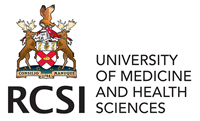Dr F O'Brien, Dr M Peak
Applications accepted all year round
Competition Funded PhD Project (Students Worldwide)
About the Project
Can guidance be provided to allow pharmaceutical companies to develop approvable strategies for alternative methods of administration of medicines to children when the marketed dosage form does not provide the required dose and/or is not acceptable to the child or carers?
It may not be viable for a pharmaceutical company to develop and market the many different dosage forms required to satisfy the dose requirements and preferences of children from the preterm neonatal age and immature development through to those of older children and adolescents whose requirements may be closer to those of adults. There is recognition that the ability to modify a marketed dosage form can be an alternative strategy to achieve the required fractional dose or to increase the acceptability of the dosage form and improve adherence to the therapeutic regimen. Modification may involve manipulation of the dosage form at the point of administration, for example splitting a tablet to obtain the required dose or crushing a tablet and administering mixed in food. It may also involve preparation in advance of need, usually by the pharmacist, by preparing extemporaneously an oral suspension from the marketed tablet and a variety of excipients to mask taste, smell or appearance.
Whilst information is included in some medicines Summary of Product Characteristics (SmPCs), little is known or written about what makes an alternative administration strategy that would meet the requirements of medicines regulators. What may be accepted for clinical trials may not be acceptable for the authorised, marketed product. If it is likely that such modifications are needed, there may be financial advantage in investigating alternative administration strategies during the early drug development stage, rather than being required to do this as a condition of authorisation at a later stage.
This project will gather evidence about modifications, alternative strategies and the current experience and opinion of the industry, regulators and clinical practitioners. Working with these interested parties, the project aim is to gather this evidence and to use it to develop a guidance framework including study design templates and risk assessments rather than definitive studies. The framework will allow appropriate dosage form modifications and design of robust studies that can be readily accepted by regulators. The supervisory and supporting team is fully expert in the regulatory context, clinical/pharmaceutical challenges and research methodologies required to deliver a successful PhD.
There are several project phases required to fully investigate this work that will include the following:
• A systematic review of published literature with an equal consideration of the 'grey' literature and experience. Engagement with stakeholders namely the EMA, FDA, pharmaceutical industry, clinical practitioners, carers and children to identify the issues surrounding the development of alternative dosing strategies.
• Examination of the impact of the manipulation of different types of dosage forms where information is lacking, using Pharmacopoeial methods and 'in use' simulations to inform study design.
• Preparation of framework guidance on the conduct of studies to support alternative administration strategies. Critical review of the guidance by stakeholders.

 Continue with Facebook
Continue with Facebook

